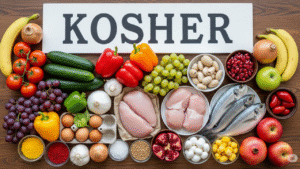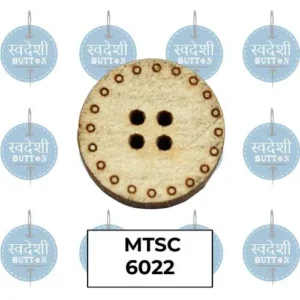Kosher India: Exploring the Rise of Kosher Food in a Diverse Culinary Land

Kosher certification in Ahmedabad
India is a land of diverse cuisines, cultures, and religious practices. Among the lesser-known but growing food movements here is the rise of Kosher India —a dietary system rooted in Jewish tradition. Though India has a relatively small Jewish population, the interest in Kosher-certified products is gradually expanding. This trend is driven by both the local Jewish communities and a broader group of health-conscious consumers and international visitors seeking trusted food practices.
What Does Kosher India Mean?
Kosher India is a Hebrew word that means “fit” or “proper,” particularly in reference to food. In Jewish dietary laws, known as Kashrut, food must be prepared and consumed in specific ways to be considered kosher. These rules originate from the Torah and have been followed by Jewish people for centuries.
Some of the key rules of Kashrut include:
- Only certain animals may be eaten (e.g., cows and goats are permitted, while pigs and shellfish are not).
- Animals must be slaughtered in a specific humane way known as shechita.
- Dairy and meat must never be mixed or eaten together.
- All fruits and vegetables are kosher but must be carefully checked for insects.
To help consumers identify kosher products, many food items are labeled with a Kosher certification symbol, granted by a recognized rabbinical authority.
The Jewish Community in India
India’s Jewish population may be small, but it has a rich history. Communities such as the Bene Israelis, Baghdadi Jews, and Cochin Jews have lived in different parts of the country for centuries. Most Jewish families in India follow Kosher India laws, especially during religious festivals like Passover and Rosh Hashanah. Cities like Mumbai, Pune, and Kochi still have synagogues and Jewish-owned businesses that adhere to these dietary practices.
Why Kosher Food is Gaining Attention in India
While traditionally consumed by Jewish communities, Kosher India food has caught the interest of a broader audience in India for a few key reasons:
- Health and Hygiene
Kosher certification is often associated with high standards of cleanliness and quality. Because the process of koshering includes thorough inspections and precise handling, many consumers trust kosher products to be safer and more hygienic. - Export and Business Opportunities
Indian companies looking to export food to countries like the U.S., Israel, or Canada find kosher certification beneficial. It increases market access and appeals to international buyers. As a result, food producers and exporters in India are seeking Kosher certification to improve their global competitiveness. - Tourism and Hospitality
With more Jewish travelers and expatriates visiting India, especially in Goa, Kerala, and Himachal Pradesh, the demand for kosher-friendly restaurants and food outlets has increased. Some high-end hotels and resorts now offer kosher meals upon request. - Vegan and Vegetarian Crossovers
Many kosher rules align well with vegetarian and vegan diets. For example, kosher dairy products are often sourced from healthier and more ethically raised animals. This makes kosher a preferred option for some Indian vegetarians and health-focused consumers.
How to Identify Kosher Food in India
Finding Kosher India can be challenging but not impossible. Specialty stores, online marketplaces, and select supermarkets in metro cities like Mumbai and Delhi now stock certified kosher products. These range from packaged snacks and dairy items to wine and cooking oils.
Restaurants serving kosher meals may not always be labeled openly, but establishments that cater to Jewish tourists or religious groups often follow kosher-style preparation. Travelers can also find kosher food at Chabad Houses—Jewish community centers that exist in several Indian cities and tourist destinations.
Businesses interested in Kosher India can reach out to international certifying agencies or local Jewish authorities who are trained in kosher inspection processes. Certification typically involves an inspection of the facility, training for staff, and regular audits to maintain kosher standards.
A Culinary Bridge Between Cultures
Kosher India may still be a niche market, but it represents a growing cultural exchange. The interest in kosher food encourages better awareness of Jewish traditions while promoting clean, conscious eating practices that appeal to many Indian consumers. From traditional Jewish recipes to kosher-certified Indian spices, this culinary fusion is helping build new bridges in a multicultural society.
As awareness spreads and demand grows, Kosher India could become a more visible part of the country’s dynamic food industry—offering both religious observance and global food quality in one package. Whether for faith, health, or business, kosher food is carving out its place in India’s diverse food landscape.



